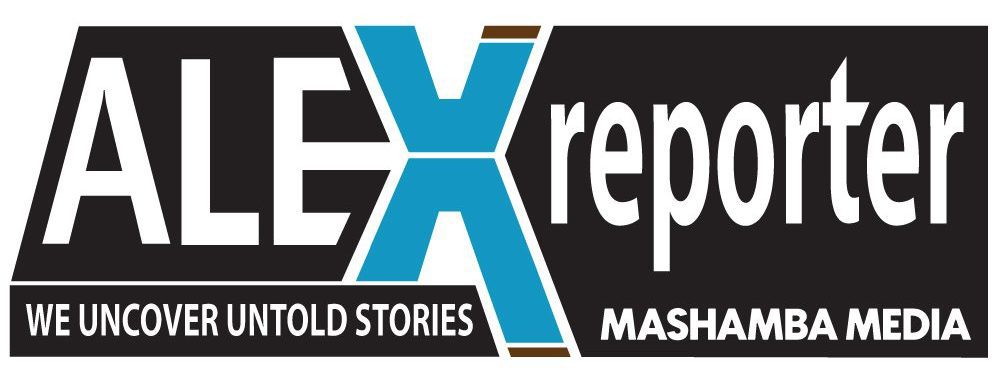
By Jonk wa mashamba
news@alexreporter.co.za
Former journalist and anti- apartheid activist, Dr Thami Mazwai who is a member of Mtiya Dynamics and Aggrey Klaaste Trust (AKT) described how hard it was for the media to operate in South Africa during the apartheid regime.
Mazwai addressed journalists and the community at the Aggrey Klaaste Trust (AKT) Annual Colloquium, named after the famous journalist and crusading editor, Aggrey Klaaste.
The event was held at Pan African Mall, Alexandra Township in Johannesburg recently.

Mazwai said he didn’t rememeber how many times he and others were banned, detained and teargased while doing their job as journalists.
He said the difference between them and the current media was their commitment to the institution and determination to expose tribulations experienced by the black people in South Africa.
“We were addressing issues that were closer to them— oppression,” he said, adding that the current enemy the media was supposed to report on was poverty, unemployment and inequality. “Our level of inequality is abnormal.”
Mazwai appealed to the media to focus on the enemy to an extent that everyday there must be a story about it. “The media must consider it a crime if there’s a newspaper that goes out without stories about poverty, unemployment and inequality,” he said.
This year, the event was hosted in partnership with the South African National Editors’ Forum (SANEF), the Sowetan newspaper, Wits University, Alex FM , Alex Reporter, DM5 Incorporated, Campaign For Free Expression, Press Council of South Africa,
Media Monitoring Africa (MMA),
Voice of Wits Radio (VOW) and
Wits Center of Journalism.
Speakers addressed the alarming recent attacks on journalists, media freedom and media sustainability, amongst others.
The event also sought to educate people on the critical role played by journalists and the devastating consequences of the increasing attacks on journalists in societies.
According to Jerome Klaaste, executive director of AKT, the idea was to involve ordinary people on the ground in finding solution to the various difficult problems facing the media and “our society instead of exclusively preaching to those who are already converted in the media industry”.
“In addition, we seek to break the language barriers which exclude the very same people we aim to serve with this campaign. That is why we will be implementing this crucial media literacy campaign in our various South African official languages all across the nation,” said Jerome.
Sanef member, Hopewell Radebe said although they were constantly jailed by the former regime, journalists that were reporting 45 years ago were protected by the community when the police were chasing them.
“Even the worst criminals would respect journalists and protect them. Today criminals kill them.”
Using Sowetan as a platform to champion his views, Dr Klaaste initiated many nation-building projects that sought to bring out the best from members of his community. These included, the Community Builder of the Year, Young Communicators’ Awards, Business Woman of the Year and the Early Childhood Development Awards.
“Klaaste loved his community and family. He sought solutions for seemingly intractable problems. He wanted to see thriving communities that brimmed with hope for the future. His whole being was shaped by events in South Africa and he sought to contribute towards finding unifying measures and solutions. He wanted to see a South Africa that firmly linked up with the rest of the continent; morally and socially.
“He was a champion for the less fortunate. He was a wonderful writer. He was a man of the people. He was compassionate. When he died in 2004, everyone in the land recognised him for the great man he was. He was a doyenne of journalism, a community builder and a loving father and husband,” said Jerome.
The Black Wednesday event marks 19 October 1977, about a month after Black Consciousness leader Steve Biko was murdered in detention, and the then justice minister Jimmy Kruger arrested editors and banned The World, Weekend World and Pro Veritate.
Kruger also banned 19 Black Consciousness organisations, including the Black People’s Convention, South African Students’ Organisation (which Biko founded), South African Students’ Movement, National Association of Youth Organisations and its affiliates, Black Community Programmes, Medupe Writers’ Association, Zimele Trust Fund, Black Women’s Federation, Union of Black Journalists and the Association for the Educational and Cultural Advancement of the African People of South Africa.
That was then, 45 years ago. Today, the threats to media freedom, independence and diversity are different from 1977, but the attacks on journalists are real, hectic and from everywhere.
Pics by Mashamba Media
Source: Daily Maverick



















